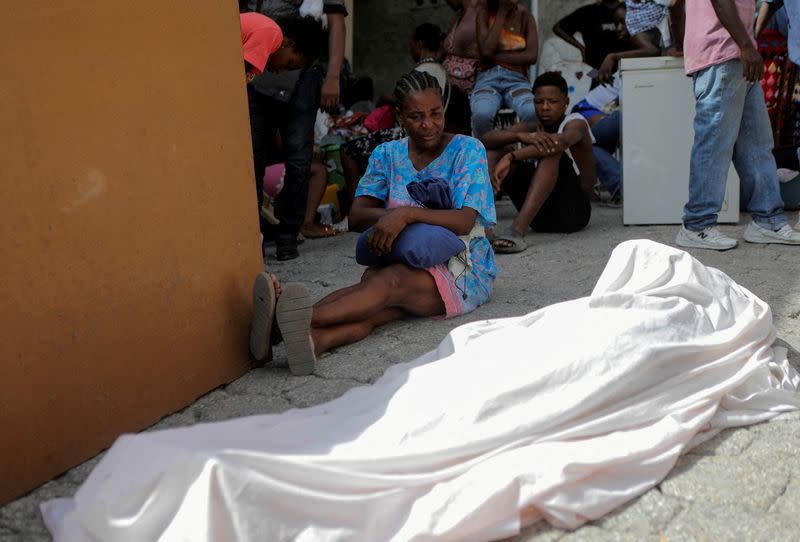Explainer-Who are the Haiti pastors fighting back against gang violence?
(Reuters) - Hundreds of followers of a Haitian evangelical pastor, some armed with sticks and machetes, marched through a Port-au-Prince suburb on Saturday and confronted a gang controlling the area, sparking a melee that stood out even in a country accustomed to daily bloodshed.
A local rights group confirmed seven deaths but said the number may be as high as 20, though they were unable to enter the area to confirm. Others were injured and kidnapped in the confrontation.
Why did so many people follow their church leader into gunfire? Here's some background on Haiti's gang violence and the role of pastors:
WHO ARE THE GANGS AND WHY ARE THEY SO POWERFUL?
Haitian gangs have expanded their control over the country's territory since the 2021 assassination of President Jovenel Moise, which created a political vacuum.
Some 200 criminal groups form a network of shifting alliances dominated by the G9, G-Pep, Kraze Barye and 400 Mawozo groups, all warring for control over strategic parts of the capital, Port-au-Prince.
Under-resourced police have struggled to battle the gangs, many of whom are armed with assault-style weapons and machine guns. Haiti's government requested urgent international security assistance last October. Kenyan officials were recently in Haiti to assess leading such a force, although many countries have been reluctant to aid a government that is unelected and widely seen as corrupt.
Countries including the United States and Canada have imposed sanctions on a slate of Haitian politicians over accusations of corruption and links to gangs.
Over 2,400 people have been killed this year and some 200,000 are internally displaced, according to estimates from the United Nations. The conflict has cut off access to food, healthcare and humanitarian aid. Kidnappings and sexual violence, often gang rapes, have become commonplace, the UN has said.
WHAT ARE HAITIANS DOING IN RESPONSE?
Some civilians have been taking matters into their own hands. In April, suspected gang members were lynched and burned alive, birthing the so-called "Bwa Kale" movement. Other such vigilante killings have been carried out with help from police, according to the CARDH rights group.
Last Saturday, Marcorel Zidor, known as Pastor Marco, of the Evangelical Piscine de Bethesda church, called on his followers to confront a gang controlling the Port-au-Prince suburb of Canaan. Police condemned Zidor after it ended in bloodshed and have yet to recover the bodies.
The next day followers of another religious leader known as Pastor Edrice gathered to take on Kraze Barye, led by Vitelhomme Innocent - who carries a $1 million U.S. bounty. Police prevented the confrontation.
On Monday, Zidor told a local radio station he would "do it again" despite the deaths, saying those of his followers who had kept faith had avoided the bullets.
WHO ARE HAITI'S INFLUENTIAL PASTORS?
Celebrity pastors have gained popularity in Haiti in recent decades. Pastor Luc Mesadieu first attempted a political foray through his Mochrena party at the turn of the century.
Influenced by U.S. mega-church pastors, such preachers gathered a following from the mid-2010s though radio and TV broadcasts. Some pastor-owned radio stations, notably from the Tabernacle of Glory church, gained thousands of followers.
Today these are sizeable and lucrative enterprises both in Haiti and throughout the diaspora of immigrants in the U.S. and elsewhere.
In a sign of their influence, Miami-based Pastor Gregory Toussaint, of the Tabernacle of Glory church, mobilized thousands of people across Haiti and the diaspora in July to push for U.S. legislation to penalize influential Haitians clandestinely backing gangs and to ease humanitarian migration rules.
Critics accused him of using the march to position himself as a presidential candidate for Haiti. Toussaint responded, "I don't need to be president to have a vision for my country."
(Reporting by Harold Isaac and Sarah Morland, Editing by Rosalba O'Brien)



